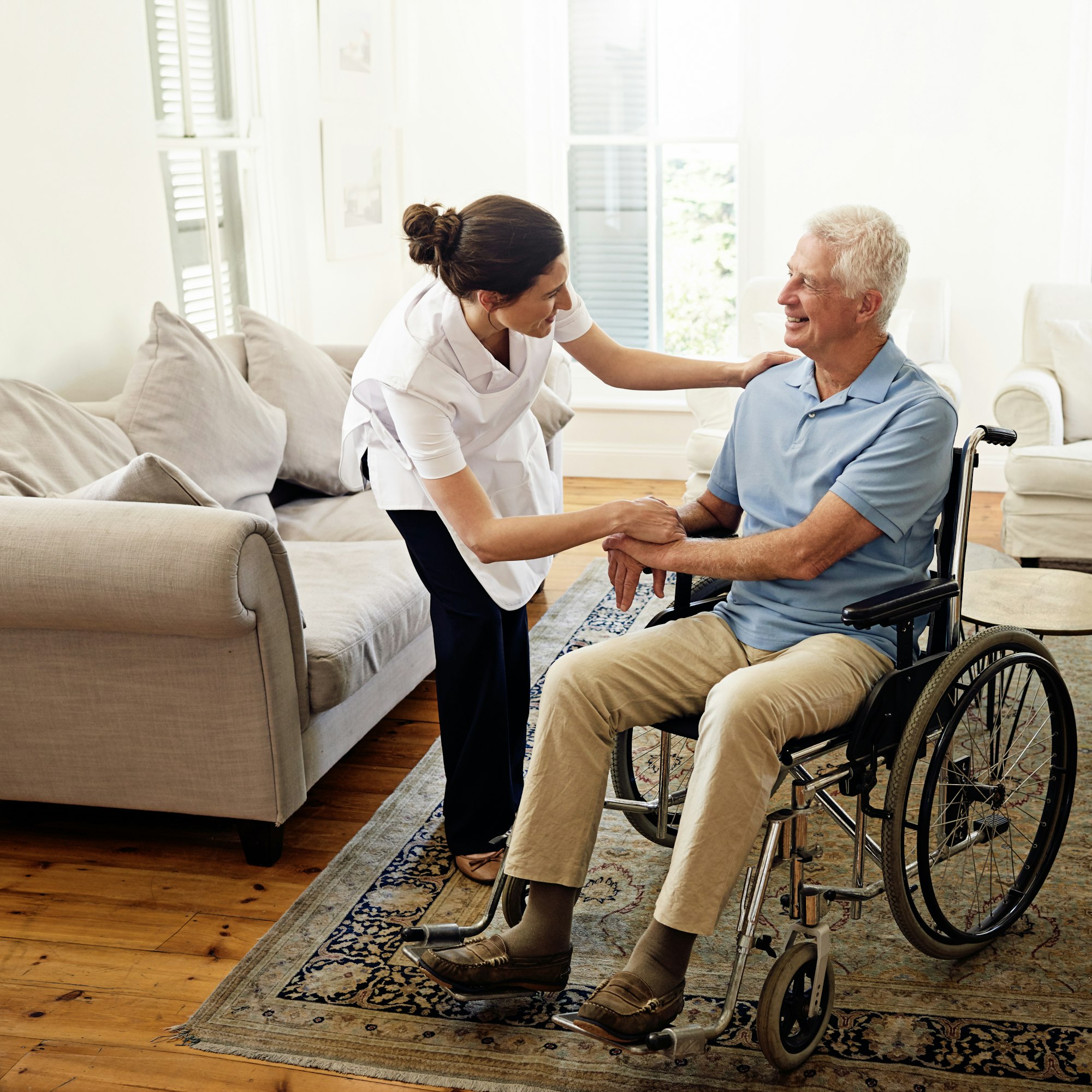
Home care is care that allows a person with special needs to stay in their home while being cared for.
Professional caregivers help patients with daily tasks they need to maintain the independence they desire. It might be for someone who is getting older or someone who is chronically ill, recovering from surgery, or has a disability.


There is no question in my mind that home care is the wave of the future. There is growing public demand for health care services that are available to the public in their own homes. The reasons for this trend are complex. They have to do with tradition, with technology, and with cost effectiveness as people look for quality, personalized health care at home.
Seniors are able to have their healthcare needs met with minimal disruptions to their lives and families can rest assured that their loves ones needs are met at all times.
There are such positive feelings that all of us associate with being home. Our home is our castle, our refuge from the storm. When we are not feeling well, most of us ask to go home. When we are feeling well, we enjoy the sanctity of our residences and the joy of being with our loved ones.
There are such positive feelings that all of us associate with being home. Our home is our castle, our refuge from the storm. When we are not feeling well, most of us ask to go home. When we are feeling well, we enjoy the sanctity of our residences and the joy of being with our loved ones.
There is no more important social value than family. It is particularly important in times of illness.
None of us wants to be totally dependent and helpless. With some assistance, seniors can continue to function as viable members of society.
There is scientific evidence that patients heal more quickly at home.
A hospital, of necessity, is a regimented, regulated environment. The same is true of a nursing home. Upon admission to either, an individual is required to surrender a significant portion of his or her rights in the name of the common good. Such sacrifices are not required at home.
Home care is tailored to the needs of each individual. It is delivered on a one-to-one basis.
The patient and his family are taught to participate in their health care. They are taught how to get well and how to stay that way.
Unlike most forms of health care, which can increase anxiety and stress, home care has the opposite effect.
By bringing health services home, the patient does not generate board and room expenses. The patient and/or his family supply the food and tend to the individual’s other needs. Technology has now developed to the point where almost any service that is available in a hospital can be offered at home.
By and large, employees of home health agencies look at their work not as a job or profession but as a calling. Home care workers are highly trained and seem to share a certain reverence for life.
Home health care has its roots in the early 1900s when some method was needed to provide care for the flood of immigrants who populated our major cities. These individuals usually did not speak English, had little money, and did not understand American medicine. The same conditions exist now to some extent because of the new wave of immigrants and the large number of homeless individuals who roam our streets.

Home Care Client in Westchester, NY
My father receives services from Hope Home Care, Inc. and the process was smooth and we are very satisfied. Hope Home Care, Inc did a great job processing my father’s papers and pushing to start his personal care (CDPAP) service swiftly. Thank you Hope Home Care.

At Home Nursing Client in Queens, NY
My husband was a ventilator dependent patient due to progressive ALS Motor Neuron Disease and Acute Reparatory Failure. Thanks to you we were able to realize our dream come true for my husband at home and not place him in a Nursing Home. The nurses provided my husband with the utmost expert medical care and professionalism, they treated my husband with love, care and devotion as if he was a member of their family.
The ability to remain in their own homes is vital to most elderly people. It helps them retain their dignity and their sense of control in the face of physical limitations, which often strips them of that very sense of dignity and independence.
HHCI registered nurses coordinate all aspects of care.
© 2024 Hope Home Care, INC. All Rights Reserved.